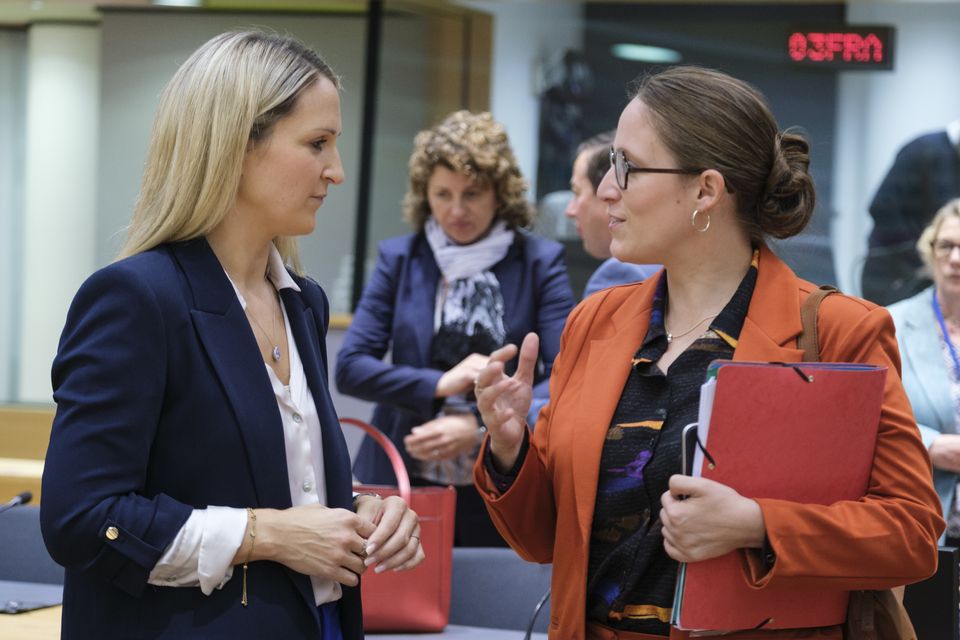[ad_1]
Minister Helen McEntee with the Belgium Secretary of State for Asylum and Migration Nicole de Moor at an EU home affairs Ministers meeting today. Photo: Thierry Monasse/Getty Images.
Ukrainian refugees living in Ireland are set to have their temporary protection in the country extended until March 2025 after EU ministers agreed upon the measure in a meeting this evening.
Minister for Justice Helen McEntee TD represented Ireland at a meeting of Home Affairs Ministers held in Brussels this Thursday to discuss migration within the European Commission.
A proposal for a one-year extension of the application of the Temporary Protection Directive in light of the war in Ukraine was discussed by EU ministers.
The Temporary Protection Directive is an EU law to deal with a “mass influx” of people in need of international protection.
It was activated in Ireland for the first time in March 2022 in response to the war in Ukraine and had been extended to 2024.
Speaking at the meeting Minister McEntee described the agreed proposal to extend the Directive until 2025 as “an important demonstration of continued solidarity and support for Ukraine.”
“Innocent civilians, including children, and vulnerable persons continue to be displaced from their homes as a direct result of ongoing Russian aggression,” Minister McEntee said.
As of June, the Central Statistics Office (CSO) reported that there were in excess of 84,000 Ukrainian refugees living in Ireland, with the figure now believed to be 93,000.
Minister McEntee stressed that a “substantial whole-of-government humanitarian response” has been put in place in Ireland for Ukrainians who have sought temporary protection.
Upwards of 70,000 Ukrainian refugees are now housed in state provided accommodation.
This week, it was agreed that an additional €1 billion be diverted to help house Ukrainian refugees in Ireland, with the figure agreed by Government set to help the Department of Integration cover the costs of providing housing for those seeking protection.
Speaking following the announcement of €1 billion extra this week, Minister for Public Expenditure Pascal Donohoe said the Government had already set aside the funds in Budget 2023.
“This funding will continue to support the state’s humanitarian response to the Ukraine crisis.
“The state has had to work extremely hard to manage the significant influx of people from Ukraine since the onset of Russia’s invasion of Ukraine,” he added.
[ad_2]
Source link




